Requirements for birth, deaths, funerals in Spain
Birth, Deaths & Funerals
As all nations do, Spain requires that births and deaths be officially registered. A baby born in Spain needs a Spanish birth certificate, regardless of the nationality of its parents. If the parents are not Spanish, they should also register the birth at their own country’s consulate. A death must also be registered, both in Spain and with the consulate of the country of the deceased.
Contact our English-speaking team for all your legal, property, and accounting needs.
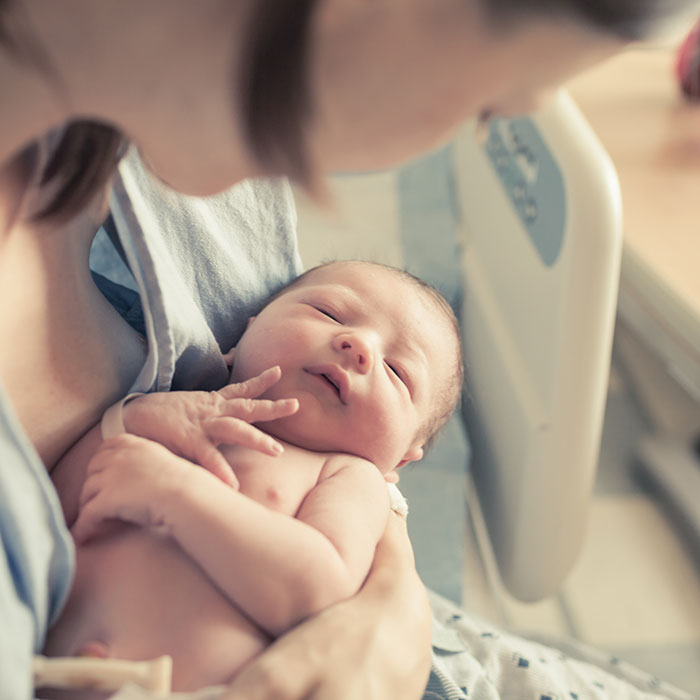
Birth in Spain
By law, all births in Spain must be reported and registered. Even if you unexpectedly have your baby while you are on holiday in Spain, the birth must be reported here. This is done at the “Registro Civil”, the civil Registry, of the town where the birth takes place.
The attending physician or other official of the hospital certifies the birth, though a registered midwife may also do this if the birth takes place at home with only the midwife in attendance. The report must be made within eight days and should include; the hour, date and place of birth, the child’s first and last names, the full names of the both parents, and the doctor’s certificate. This information will go on file at the civil registry.
The parents can then request for their own records one of two forms of the birth certificate. One is called the “extracto de inscripcion de nacimiento”, which states the date of birth, inscription number and the names of child’s and parents. This abbreviated “extract” is sufficient for most legal purposes.
You can also get a “certificacion literal”, which will list more detailed information, such as the exact place and hour, the attending physician, and so on.

Spanish Surnames
A child born in Spain will be given two last names. When you register the birth, you will come in contact with the Spanish practise of using two last names. If you are John Smith and your wife’s maiden name was Betty Jones, your son will be registered in Spain as James Smith Jones. The Spanish rule is that the last name of the father comes first, followed by the last name of the mother. A child may choose to use his mother’s last name first when he comes of legal age.
Armed with this certificate of birth in Spain, you can then go your consulate to report the birth. Some countries, such as Great Britain require the more in depth “certificacion literal” before they will issue a birth certificate. You may also need your passport, your own parent’s birth certificates and your marriage certificate.
Procedure and necessary documents vary somewhat depending on your country of origin. Your consulate will then issue a certificate of birth of a citizen abroad.

Nationality of Child Born in Spain
A child born to foreign parents in Spain does not automatically acquire Spanish nationality. If both parents are foreigners, the child will be a foreigner even if the parents are residents. However, the child will have the option of applying for Spanish nationality, between the 18th and 19th birthdays. The request is likely to be granted, particularly if the child has resided in Spain for most of that time.
If either of the child’s parents is Spanish, a child born in Spain is automatically entitled to Spanish nationality. A child born in Spain out of wedlock, where the paternity is not disclosed, is also entitled to Spanish nationality, regardless of the nationality of the mother. The laws about nationality vary from country to country and can be quite complicated in their attempts to cover the various possible combinations, such as a citizen-and-foreign wife or citizen-and-foreign husband, or a father born in that country who has since taken another nationality.
Make enquiries at your own consulate. Sometimes a country requires that a child of its own nationals who is born abroad must return to his parent’s country for a certain time period in order to justify his nationality, for example.
For further information you can visit:
https://www.gov.uk/browse/births-deaths-marriages

Death in Spain
If you are resident in Spain and have no plans to return to your home country near the end of your life, you should take these steps:
- Make your Spanish WILL with your legal representative.
- Select a cemetery where you wish to be buried.
- Make contact with a Spanish funeral director.
- Share your arrangements with your partner and family members.
- Perhaps take out Spanish burial insurance if you are not already covered
- Procedures in Spain are just about the same as in your home country, but it helps to be familiar with them.
If the death occurs in a hospital, a doctor on the staff will prepare and sign the death certificate, which must be officially issued by a Spanish judge. If death occurs at home, the attending physician can prepare the certificate.
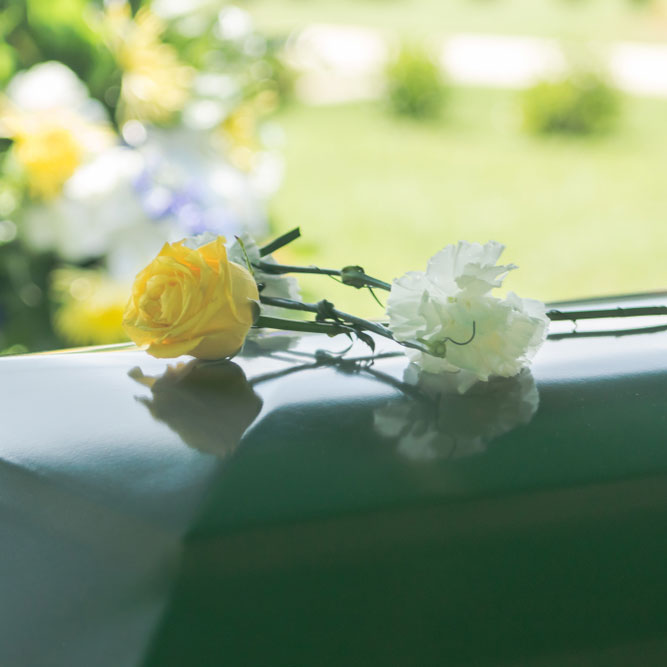
Funerals in Spain
The funeral director is probably the first person you should contact if you are in charge of arrangements for a death. Funeral directors in Spain, just as in other countries, are aware that family members are distraught when a loved one has died. So they aim to provide full service, including all the necessary paperwork and you may need to make only one telephone call to set the process in motion. Funeral directors in areas with many foreign residents usually have at least one English-speaking staff member. When they receive a call, they respond quickly.
If no doctor has officially pronounced the person dead, they will locate a doctor to do so and they will inform both the Spanish Judge who officially issues the death certificate and the consulate of the person’s nationality, as the consulate must issue a death certificate for that country.
You need both these death certificates for any insurance forms and for executing the will of the deceased. The funeral director takes the passport data of the deceased and of the person who is responsible for the body in order to prepare his own reports. He sees that the necessary official certificates are delivered to the family. If necessary, the funeral director can then take the body to the nearest cold-storage vault. Such vaults exist in larger towns in Spain.
Cemeteries are usually owned by the towns where they are located and a foreigner can be buried in most of them, whether or not he is Catholic. Perhaps we should not say” buried” as most cemeteries in Spain are, in fact, above ground. And the bodies are placed in niches. At a burial, the casket is eased into the niche and a pair of masons bricks it in.
You will probably find that you need to be registered as an inhabitant of your municipality in order to be buried in the local cemetery. This is another reason to obtain that “certificado de empadronamiento”. (See expat issues).
If your new home town cemetery does not suit you, there are others available. In Málaga, for example, there is an English cemetery and in Benalmadena there is an international cemetery. These have the sort of burial plots to which northern Europeans are more accustomed. Funeral directors can make arrangements for the cemetery plot or niche. They can also contact a British, Danish, Swedish or German pastor, as appropriate, to perform the burial service.
If the body is to be returned to the deceased’s home country, funeral directors can make the arrangements for the air transport as well as the embalming. Embalming is not a standard practice in Spain, but it can be done.
The Spanish funeral director will see to the body’s transport to the airport in the home country, after which you will have to make other arrangements to have the body picked up. A few funeral directors have corresponding agents in other countries that will see to it that the body is delivered to any town in that country.
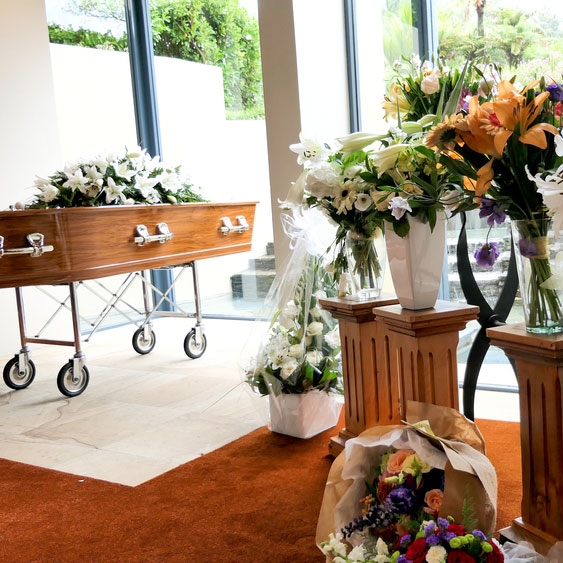
Funeral costs in Spain
What will all this funeral service cost you? A basic rate would be around 3.000€, but this can rise quickly when transport costs, embalming fees, cold storage and cemetery fees are added in.
You should know that most Spanish cemeteries usually let their niches for varying time periods. The municipal cemetery rates are quite inexpensive, but it is not the same as purchasing the plot forever. One Málaga cemetery quoted rates of 300€s for the first five years, dropping to about half the rate thereafter, around 30€ per year or 1.500€ for 50 years. If the rent is not paid, after a time the body is removed to a common grave site within the consecrated cemetery grounds. If you wish to purchase a plot, it can cost more than 3.000€ for a double plot, for example, at the Benalmadena International Cemetery on the Costal del Sol. You can ask at your own town hall for prices “en perpetuidad”.
If you wish to repatriate a body to the deceased’s home country, you will find that prices for air transport of bodies are high. They go as freight and are charged by the kilo. Air transport costs within Europe can range from 1.000€ to 2.500€s. Prolonged storage will also add to your costs. Embalming costs around 1.500€.
It pays to plan ahead. Check now with a Spanish funeral director for his rates and services. If the first price quoted you seems high, do not hesitate to visit another funeral director and compare rates. Burial insurance is also available in Spain.

Cremation in Spain
If your preference is cremation, you will find crematorium available in many areas of Spain. Cremation was almost unknown a few years ago but is now quite common.
One peculiarity of the cremation procedure is that family members are not allowed to attend the cremation itself. They may hold a religious service before the cremation, with the body present, or after it, with the urn. Cremation costs around 400€ as a minimum but prices are steadily rising.
For those who choose to donate their bodies to medical science, any medical school in Spain will be very pleased to make the arrangements in advance. Simply telephone the medical school and declare your intentions. Their only conditions are that the body be available within 24 hours of death and that the death was not caused by an infectious disease or an accident which requires autopsy.
The usual custom in Spain, where it is hot and bodies are seldom embalmed, is to bury the day after death. This is custom, not law. The law says only that a body may not be interred sooner than 24 hours after the death has occurred. Where there is no cold storage, it must be buried within 72 hours. Where there is a cold storage available, this limit does not apply.
Need help understanding the taxation system?
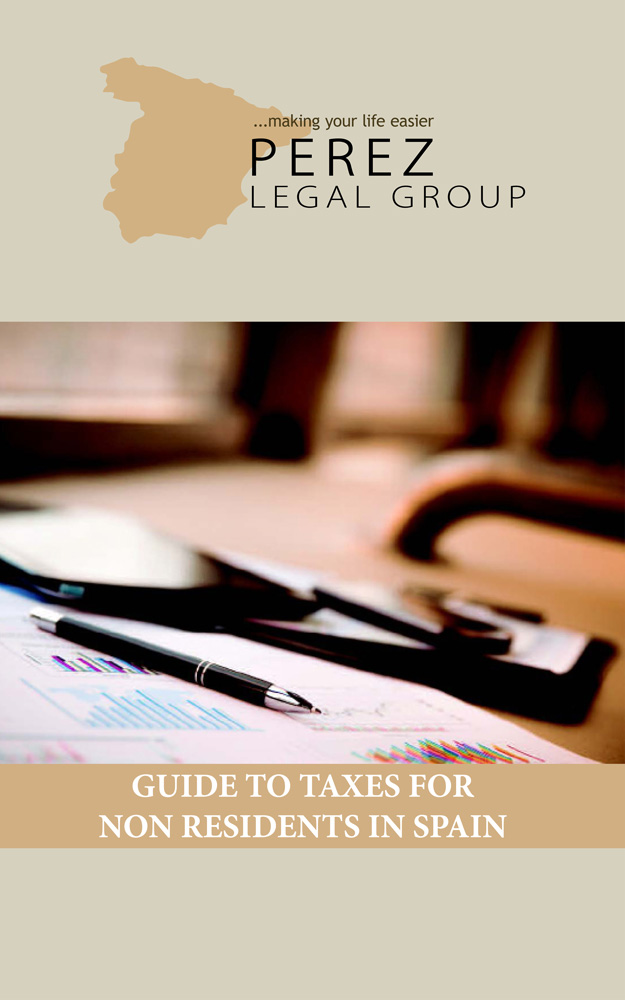
Download the FREE Guide to Taxes for Non-Residents in Spain, written by Raquel Perez, owner of Perez Legal.
Are you buying a property?

Then you need to know the process. Download the FREE Guideline Procedure for Purchasing a Property.
Confused with the legalities of buying a home?
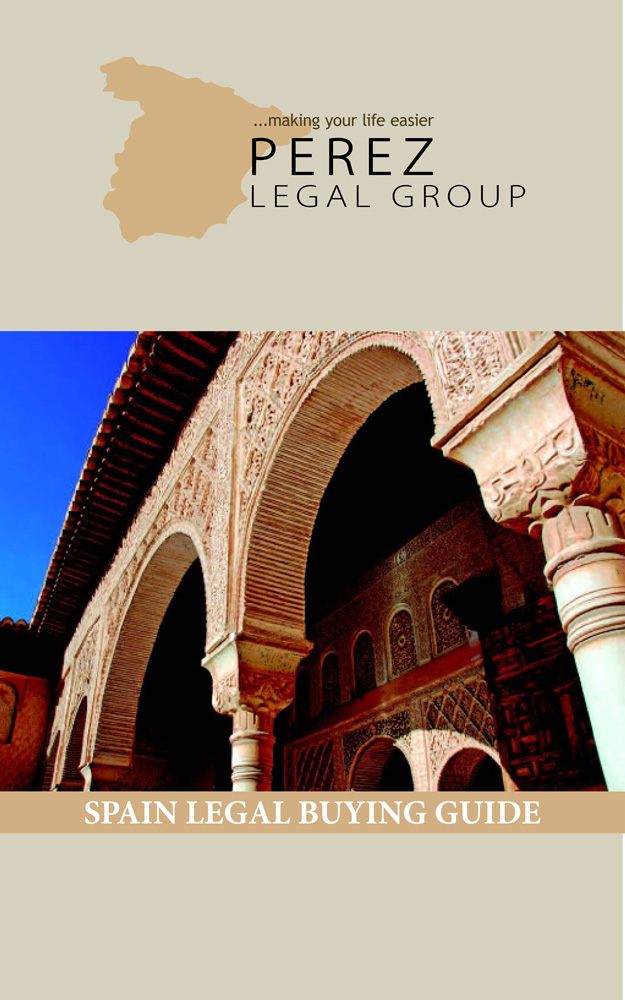
Download the FREE Spain Legal Buying Guide, written by Raquel Perez, owner of Perez Legal Group.
Selling your property?
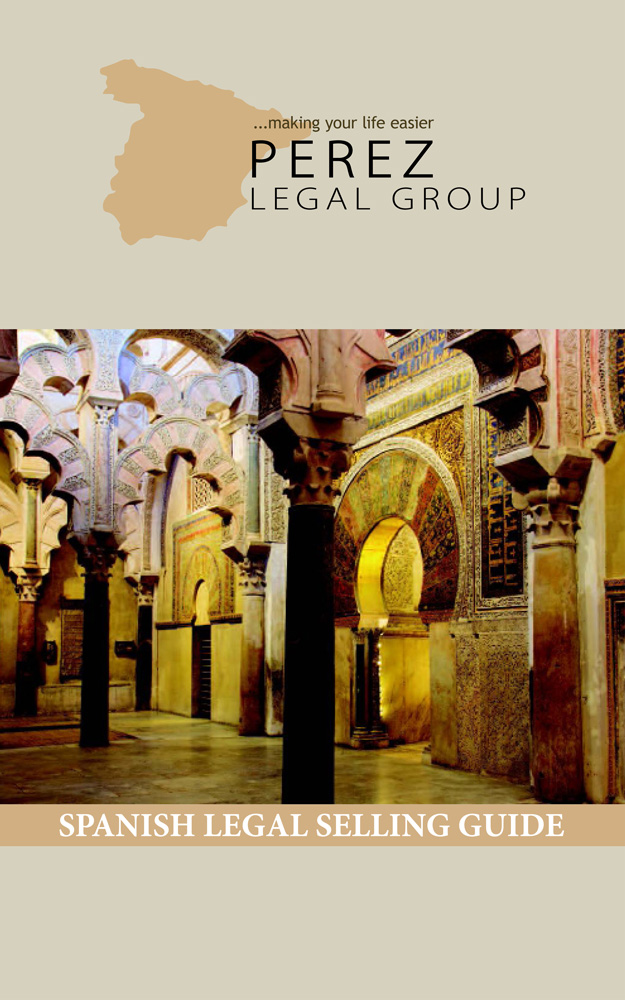
Get an overview of what is involved by downloading the FREE Guide to Selling Your Spanish Property Legally.
Do you need help planning for the future?
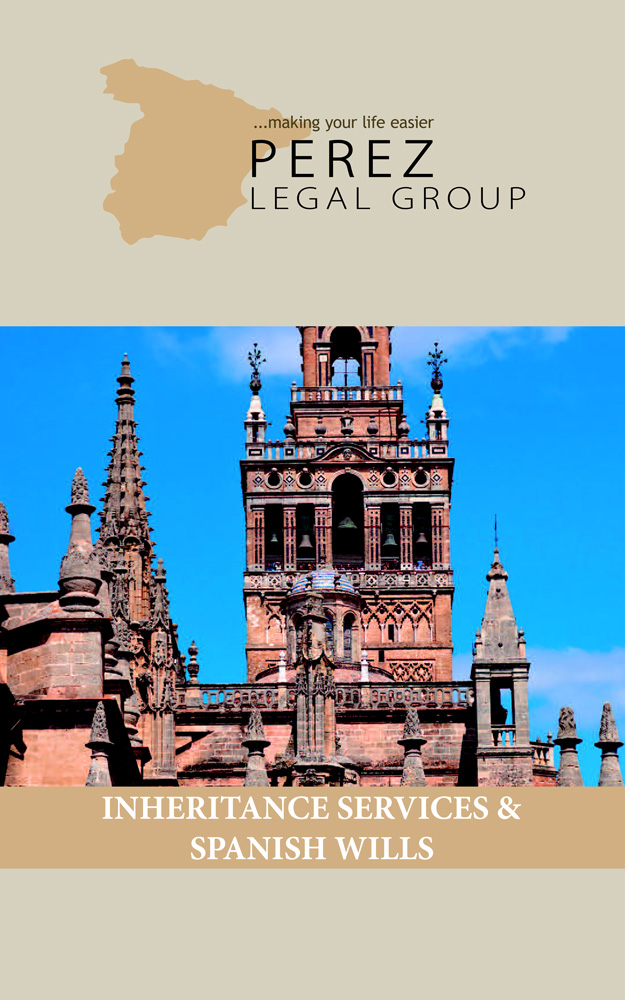
Find out more information on the inheritance system here in Spain by downloading the FREE Inheritance Services book.
Are you planning to run a company in Spain?

Download our Fiscal & Accounting Services Guide and Price List to find out all about running a company in Spain.
